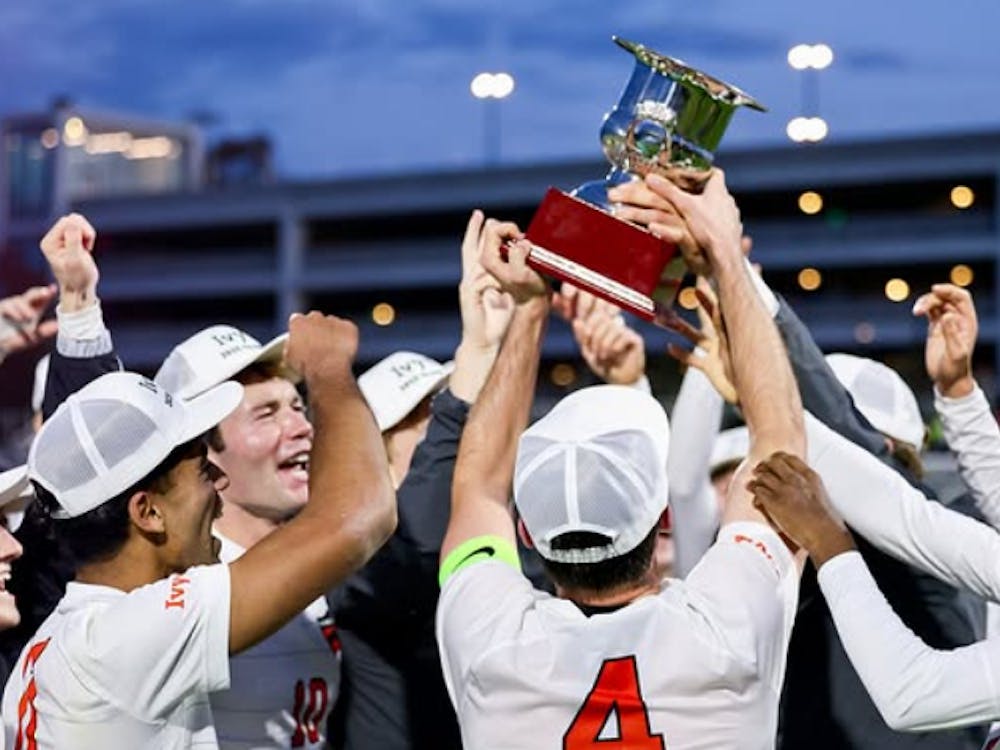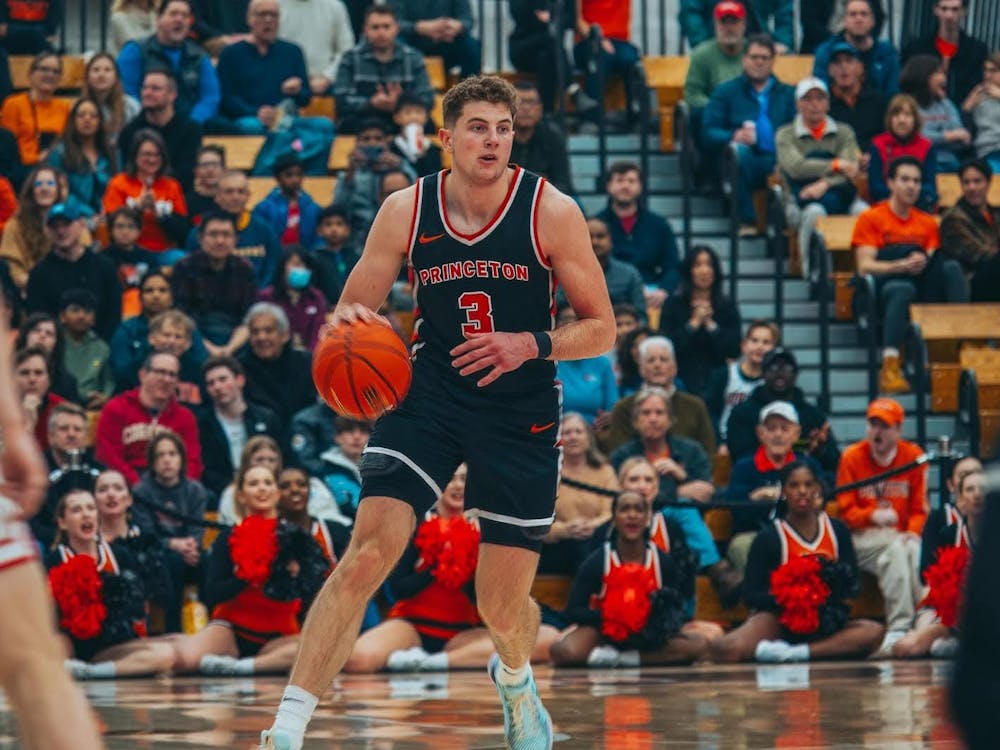Junior Stan Morton, the student conductor of the Princeton University Band, is having a hard time thinking of an anecdote.
He mentions the time that an airline lost the band's drums...then there was the time that the band got a Virginia men's lacrosse player ejected from the national title game...there was that trip to New Orleans...
"You're asking this question of this group?" he asks incredulously. "This is definitely one of the most fun groups of people. All kinds of stuff happens."
The Princeton University Band debuted at the Princeton-Maryland football game on Oct. 9, 1920, and has been playing at university sports events ever since.
It is one of fewer than a dozen "scramble bands" in the country, which include all of the Ivy League bands but Cornell's. Instead of marching, the band "scrambles" around the field, seemingly at random. Halftime shows build off of the interplay between comedy, music and movement.
The band began to use satire in its shows in the mid-1950s. By the turbulent '70s, the shows were infused with the undercurrent of generational hostility that dominated the campus.
Today's shows continue to treat a variety of national and campus issues satirically, but they are less politically charged. Still, though, as in the 1970s, they must be pre-approved by a censor board of administrators.
Over the years the band has decreased significantly in size, from almost 100 players in the '70s to its current size of about 45.
Nancy Newman '78, former band president and current university trustee, explained that the band used to fulfill a university physical education requirement.
"But I think part of it had to do with the fact that there hadn't been quite as big an explosion in the number of different things you could do musically like you can now," she said. "Also, people seemed to go to football games a little bit more."
Despite the decrease in membership, Newman thinks that the band's level of musicality has increased over the years. The band now has a musical advisor — high school band director Jack Hontz.
"From the general student body there's more of a sense of apathy [about the band], which is typically how the student body looks at everything," Morton said.

"But a lot of the athletes really appreciate us being there, because attendance is so bad. It means a lot to them."
Welcome all
One thing that hasn't changed is the band's sense of camaraderie.
"I may meet a kid who's one year out of school and find out they were in the band," Newman said, "and it's kind of like kindred spirits."
Current president, junior David Driscoll, thinks the band is "unique" among Princeton groups. "It's a lot less exclusive of a group than I think most student organizations here are," he said.
Though most members have prior musical experience, the band is open to anyone.
"It's very different from the other musical groups," Morton said. "We encourage people of various levels of skill. It's a chance for people to improve, possibly learn something new."
Another draw, for Driscoll, is the chance to "cause trouble on other campuses."
Trouble?
Most Princeton students know that the band plays in the Woodrow Wilson fountain to celebrate home football wins. But the band gets even crazier on other campuses. In the hours before kickoff at away games, the band can be found invading libraries, bookstores, and student centers. Sometimes the band is greeted warmly; other times — as at a Cornell hotel a few years ago — the manager calls the cops.
As its constitution states, "the band exists as much for the enjoyment of its own members as it does for the entertainment of spectators."
Which is why it's so hard for Morton to think of just one anecdote.
"Just generally, we have a good time," he said. "Wherever we go, craziness has a tendency to ensue. Sometimes we bring it on ourselves."
Junior Paris Makell, the drum major, had to interrupt. "Sometimes?"
"Okay," Morton conceded. "All the time."







